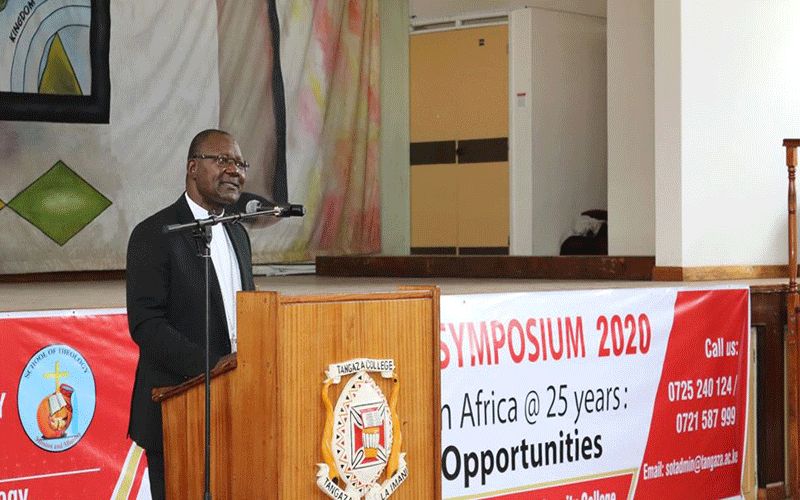Nairobi, 22 February, 2020 / 3:59 am (ACI Africa).
At a conference organized to deliberate on the challenges and opportunities of the Post-Synodal Apostolic Exhortation of Pope John Paul II “Ecclesia in Africa” after 25 years of its publication, a Kenyan Bishop acknowledged the “revolutionary” nature of the document but noted the exhortation’s threefold limitations.
“25 years later after the issuance of the Apostolic Exhortation ‘Ecclesia in Africa’ by Pope John Paul II in 1995,” Bishop John Oballa said in his keynote address, “many church leaders, agents of evangelization and theologians can prudently say that its vision, message and mission was an ecclesial ‘revolution’ intended to bring deeper evangelization, holistic transformation and relevant renewal to the life of the people on African continent.”
The document is revolutionary because of the demands the Holy Father gave to the Church on the continent, Bishop Oballa noted.
“The Holy Father challenged the Church in Africa to study, articulate, implement and pray over her mandate in the FIVE main pastoral dimensions of,” the Kenyan Prelate said referencing Pope John Paul II’s invitation to pay keen attention to the proclamation of the Gospel, its inculturation on the continent, engagement in interreligious and ecumenical dialogue, justice and peace, as well as social communication.
Bishop Oballa described the five focus areas proposed for the Church in Africa as “five pastoral-roadmap agenda” that was meant to “be witnessed and lived through a dynamic and relevant informative, formative and transformative ‘Ecclesia in Africa’ catechesis, sustainable local ecclesial leadership and personnel, and to contribute these to the universal Church.”








